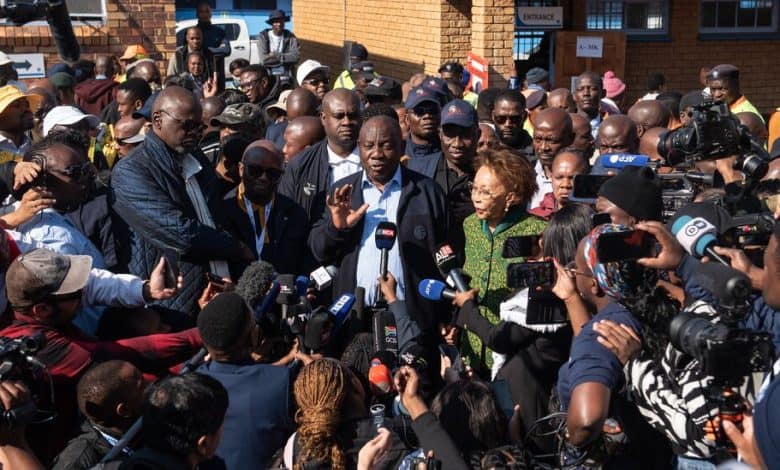South Africans Turn Away from Ruling Party, Early Election Results Show

South Africans were on edge Thursday as votes trickled in from a tight national election, with early returns showing poor results for the African National Congress, the party that has governed the country for three decades.
While official results are not expected before the weekend, projections show the party, known as the A.N.C., will likely draw under 50 percent of the vote, down from 57.5 percent in the last election five years ago.
That would mean the A.N.C. — for the first time — would need to form a coalition with one or more rival parties in order to stay in power. In South Africa’s parliamentary system, President Cyril Ramaphosa, the leader of the African National Congress, would need the support of members of the opposition in order to serve a second term.
A weakened A.N.C. would significantly change South African politics, and also its policies, shifting the country away from a government dominated by a single party to one held together by fragile coalitions. This strategy has worked for the A.N.C. in small municipalities, but has been fraught in large cities like Johannesburg, where it has led to political infighting.
With over one-third of all voter districts counted, the early results showed the A.N.C. with 43 percent, and trailing in critical provinces that it won handily in the last election..
These early results for the A.N.C. stem largely from rural regions that have remained loyal to the party. In South Africa’s most populous province, Gauteng, only 12 percent of voting districts had confirmed their results by Thursday.